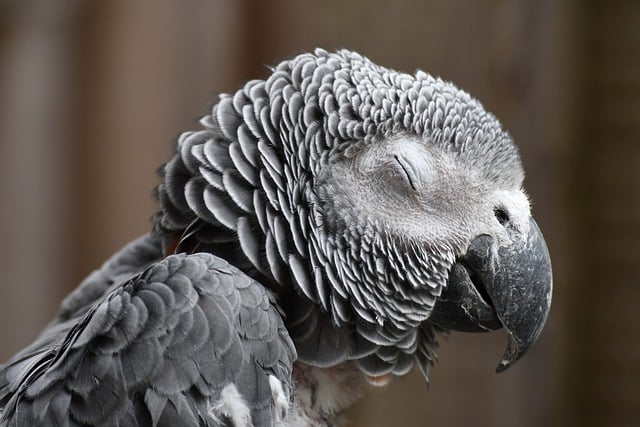This article provides an overview of the nutritional needs of exotic birds, highlighting the importance of providing a balanced diet and offering tips on how to choose the right foods for your feathered friends.
Introduction
The world of exotic birds has grown significantly over the years, with many species being kept as pets. While it can be thrilling to have a unique and colorful companion, it’s essential to remember that these birds have specific nutritional needs that must be met to ensure their health and well-being. In this article, we will delve into the world of exotic bird nutrition, exploring the different types of foods that can be provided to your feathered friend.
The Importance of a Balanced Diet
A balanced diet is crucial for the health and survival of exotic birds. A diet that is lacking in essential nutrients can lead to malnutrition, which can have serious consequences for your bird’s overall health. The nutritional needs of exotic birds vary depending on their species, size, age, and activity level. Some birds, such as parrots, require a high-protein diet, while others, like finches, need more carbohydrates.
Key Nutrients for Exotic Birds
* Protein: Essential for the growth and maintenance of tissues, including muscles, bones, and organs.
* Carbohydrates: Provide energy for flight, exercise, and other physical activities.
* Fruits and Vegetables: Rich in vitamins, minerals, and antioxidants, these foods can help support overall health.
* Healthy Fats: Necessary for the absorption of certain vitamins and nutrients.
* Calcium and Phosphorus: Crucial for strong bones and beaks.
Choosing the Right Foods
With so many options available, choosing the right foods for your exotic bird can be overwhelming. Here are some tips to help you make an informed decision:
* Fresh Fruits and Vegetables: Offer a variety of fresh fruits and vegetables daily, such as apples, carrots, and leafy greens.
* Commercial Pellets: A high-quality commercial pellet can provide essential nutrients, but should not be the only food source.
* Nuts and Seeds: Rich in healthy fats and protein, these foods are great for snacking or adding to a bird’s diet.
* Supplements: Depending on your bird’s specific needs, supplements may be necessary. Consult with a veterinarian or experienced breeder before using any supplements.
Avoiding Common Mistakes
While it can be tempting to indulge in treats and snacks, some foods are detrimental to an exotic bird’s health. Be aware of the following common mistakes:
* Avocado: Toxic to birds, avocado should never be offered as a treat.
* Chocolate: Contains theobromine, which is toxic to birds.
* Caffeine: Can cause serious health problems in birds.
* Raw or Undercooked Meat: Risk of bacterial infections and parasites.
Conclusion
Providing a balanced diet for your exotic bird is crucial for their overall health and well-being. By understanding the nutritional needs of your feathered friend and choosing the right foods, you can help ensure they lead happy and healthy lives. Remember to avoid common mistakes and always consult with a veterinarian or experienced breeder if you have any concerns about your bird’s diet.
Tags: exotic birds nutrition, parrot care, finch care, bird supplements, avian nutrition

